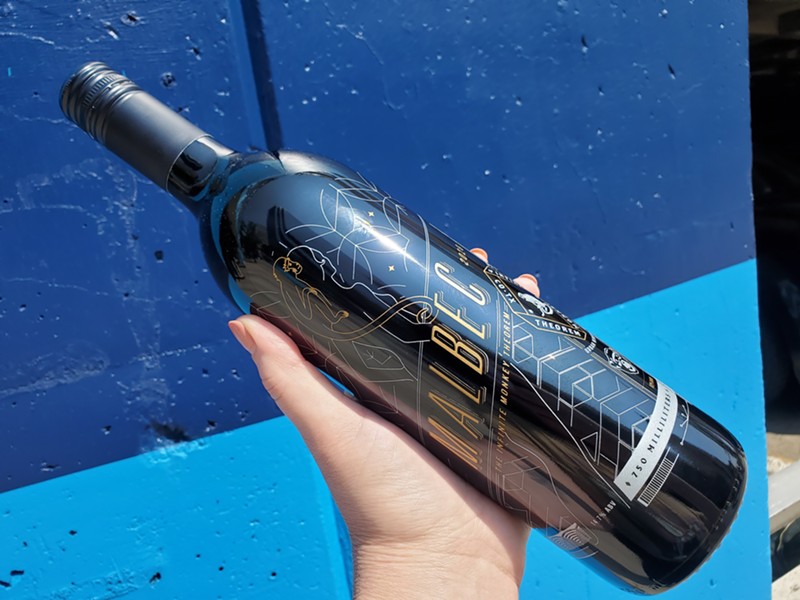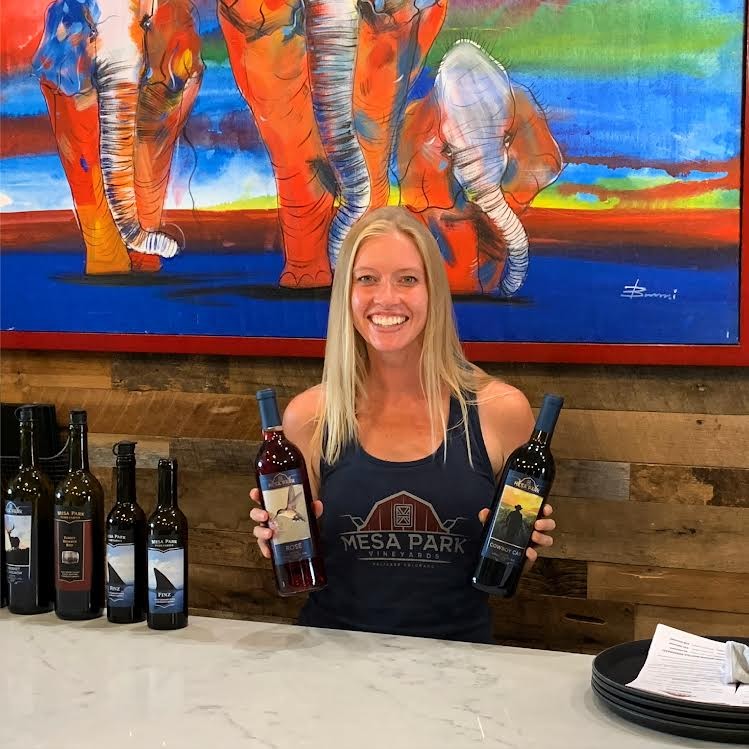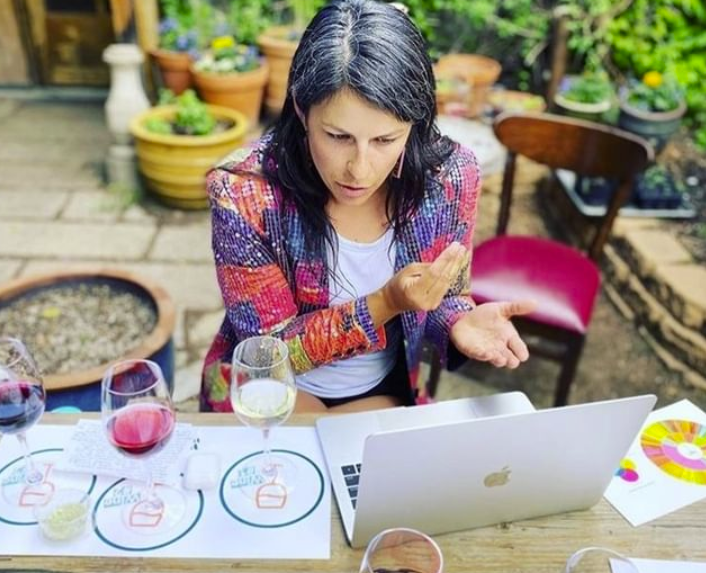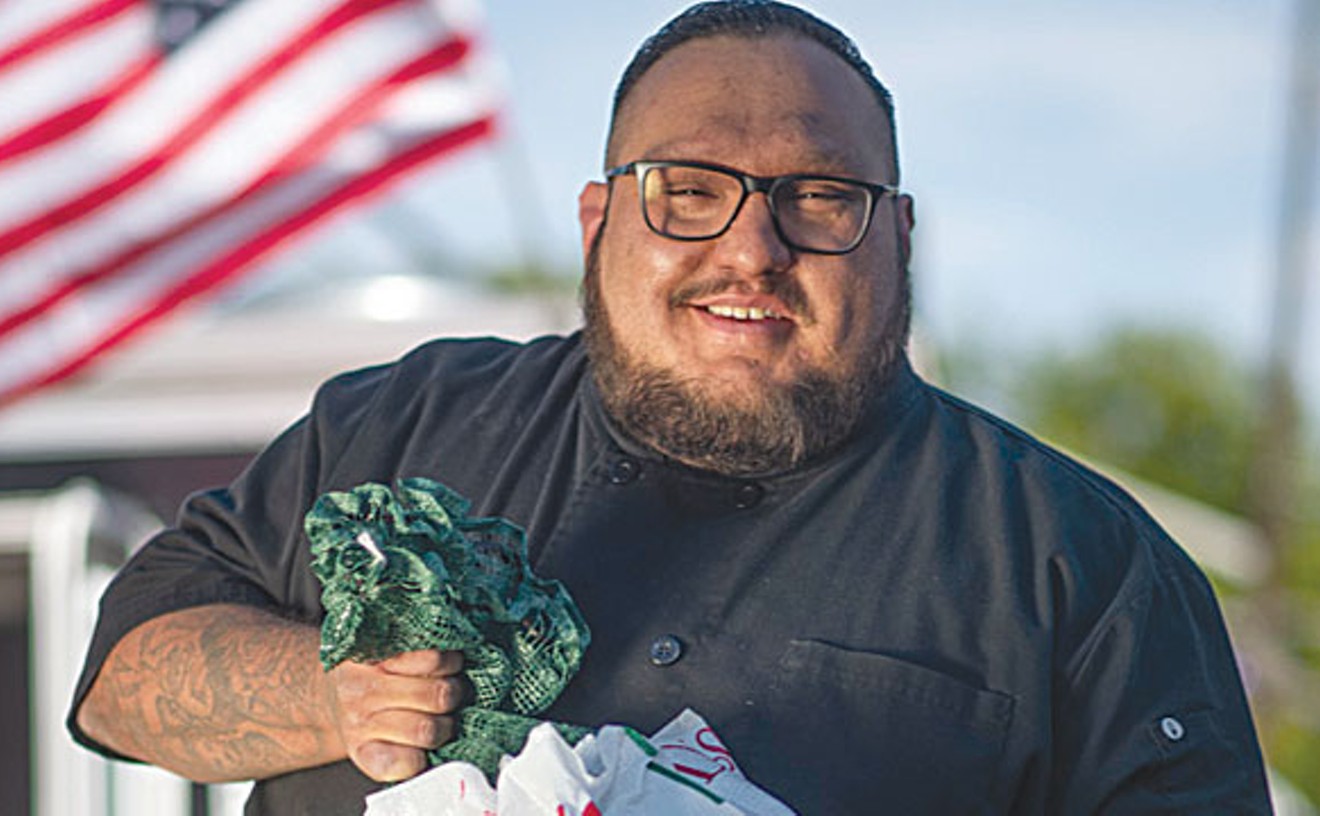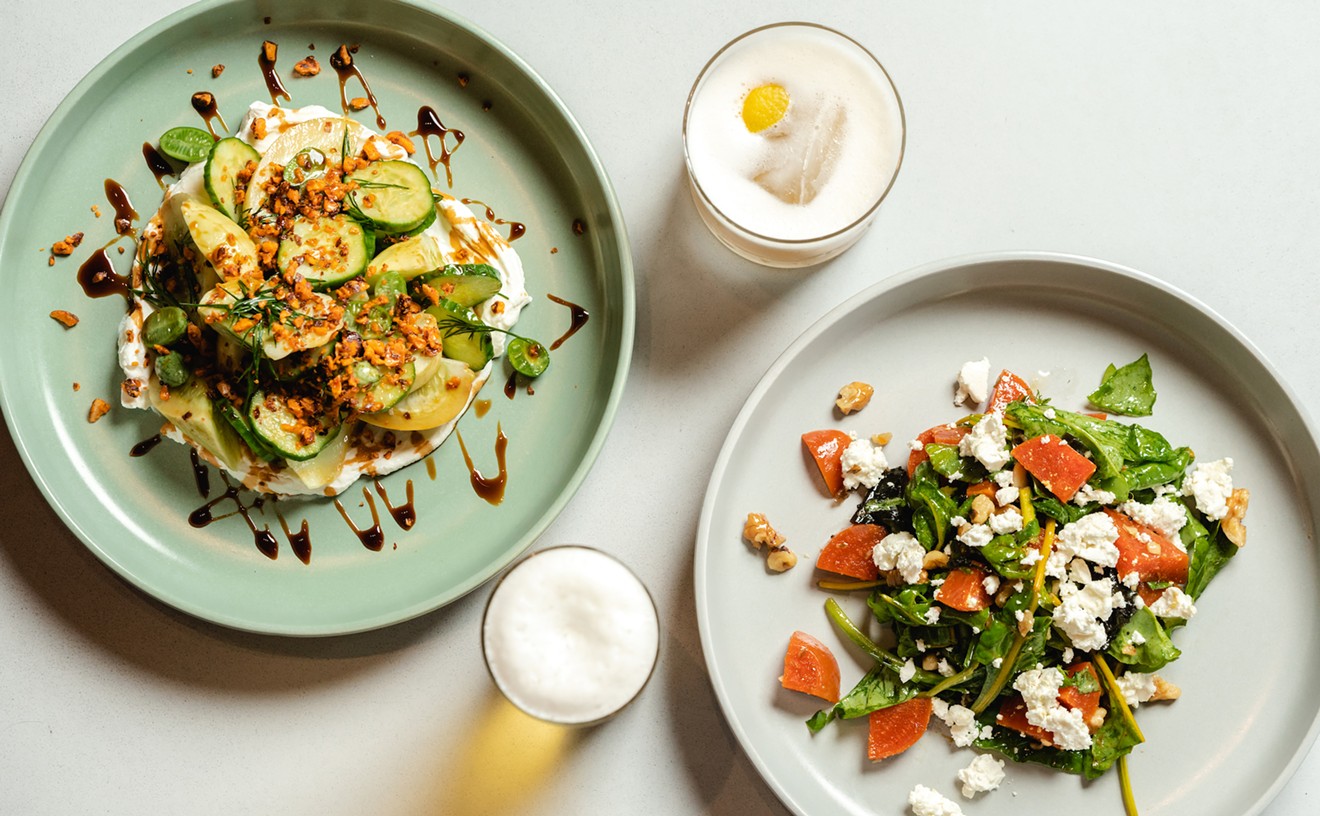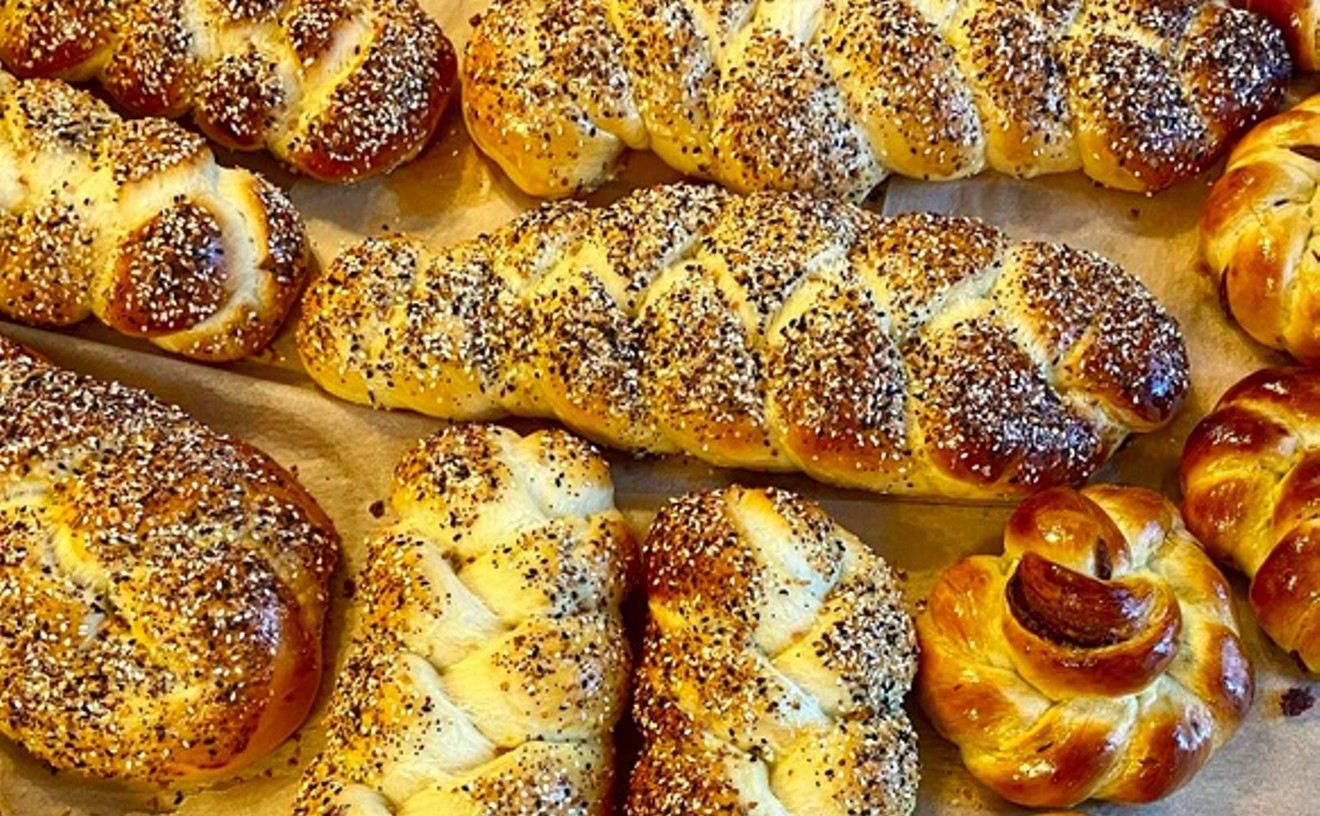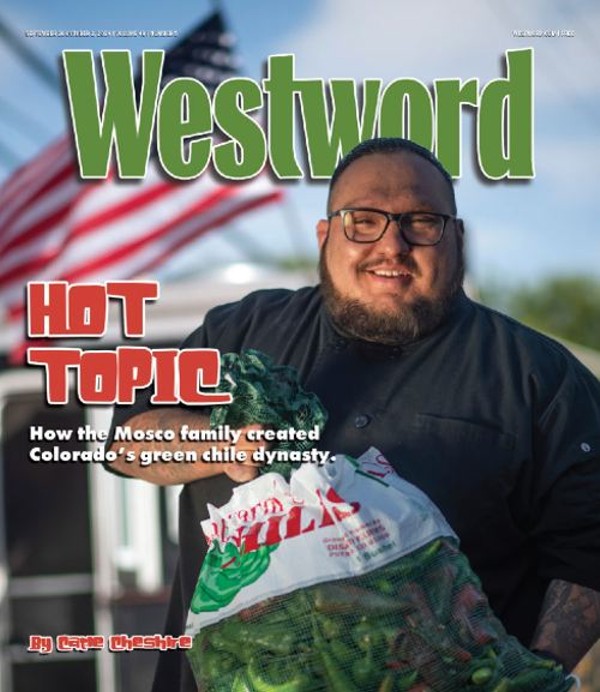Despite the beverage and wine industry historically being a male-dominated one, recently there has been an increase in female leaders, business owners and wine makers in the community, including throughout Colorado. We talked with a handful of the many influential women in the state’s growing wine scene to learn more about how they got where they are, how they’ve seen the industry change, and what you should know about Colorado wine.
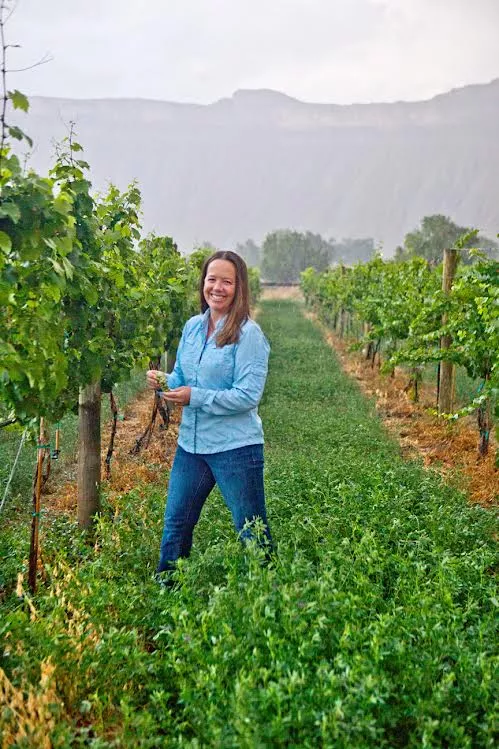
Jenne Baldwin-Eaton, Wine Instructor, Western Colorado Community College
When Jenne Baldwin-Eaton moved to Grand Junction in 1994 looking for a job in the chemistry field, she decided to explore working in wine. At the time, there were only about nine winemakers in the state — and just three of them were women. Now there are over 170 licensed wineries in Colorado and many more women who play a significant role in the industry. “In general, the women of Colorado seem to be very independent, passionate, hardworking and creative,” Baldwin-Eaton says.
It's exciting to have more females jumping in, she adds, and she’s enjoyed watching the evolution of Colorado wine, including the amplified quality over the years. The veteran winemaker was at Plum Creek Winery in Palisade for 22 years before shifting gears to pay it forward by inspiring future wine professionals. She currently teaches courses in winemaking and viticulture, fermentation science and sensory analysis at Western Colorado Community College.
The Colorado wine industry has many challenges, notes Baldwin Eaton — our climate being number one — adding, “This industry requires that you put your heart and soul into it to be successful, and even then, it's not a guarantee.”
Laura Black, Co-Owner, Mesa Park Vineyards
Laura Black decided to make the leap into the wine industry while traveling through Argentina’s wine regions with her husband, Brandon. Upon returning from the memorable trip, the two purchased Mesa Park Vineyards in Palisade in 2018. “The pieces fell together,” Black says. Not only are they producing wine, but they're growing eight acres of Merlot, Cabernet Sauvignon and Cabernet Franc grapes.
“It’s been really amazing and surprising how fast it’s grown since we’ve been here,” she says of the state’s wine industry. Fortunately, the local wine community has been tight-knit, friendly and helpful, she adds — which is ideal for someone trying to navigate a new business, especially a difficult, seven-day-a-week, weather-dependent one.
Black feels like the women in the wine industry in Colorado have paved the way for those coming into it now. In addition to Baldwin-Eaton, she notes influence from Jayme Henderson (The Storm Cellar), Linda Brauns (Restoration Vineyards), Nancy James (Whitewater Hill) and Cassidee Schull (Colorado Association of Viticulture and Enology), among many more.
Abbie Minton, Co-Founder, Women’s Wine Guild of Colorado (WWGC)
Sommelier Abbie Minton’s journey to wine began while studying abroad in Rome. She ended up working on a roommate’s family-owned winery in Abruzzo, and there was no looking back.
Minton’s exceptional Colorado wine experience includes Barolo Grill, La Tour Restaurant and Bar in Vail, Mercantile Dining and Provisions (where she ran the entire wine program) and, most recently, Harvest Wine Company and Rootstalk in Breckenridge.
Throughout her wine career, Minton realized there was more of a competitive vibe than a community feel for women in the industry. Together with co-founder Sarah Shomaker, they decided to launch the Women’s Wine Guild of Colorado as a way to bring wine women together in an encouraging environment. The goal of the nonprofit is to foster collaboration and wine education while networking and supporting women in their careers and businesses in wine.
When the group planned its first event at Mercantile, Minton thought maybe about twenty women would attend — but 125 women showed up, clearly proving the desire for curating a stronger wine community. “It was kind of unbelievable,” she says.
Events have included offering all female winemaker flights at women-owned wine bars, speakers and panel discussions, business spotlights to shine a light on local wine businesses, networking events, participating in wine festivals and more.
Nicki McTague, Infinite Monkey Theorem CEO
Nicki McTague’s goal is to continue educating people on Colorado wine and agriculture, and to show wine drinkers that there’s really good wine coming out of this state, she says.
McTague, who started at the winery building partnerships with the community and local businesses, is now leading the charge. The Denver winery is 50 percent owned and 80 percent run by women. “It’s new and exciting to watch this team of women,” she says. “We’re really trying hard to be more aware and listen to what customers want.” That’s included rebranding the imagery and incorporating fun events like bottomless mimosas. McTague is also proud to work with her team on various ways to give back to the community, including providing bikes for local children.
Infinite Monkey Theorem isn’t new to innovation — it helped popularize canned wine locally. McTague believes that with the active, four-season lifestyle here, canned wine for hiking and camping is ideal. “It just makes sense in the state of Colorado,” she says. She’s enjoyed watching the brand grow — even expanding to the skies; it's now available on Frontier Airlines flights.
From a more global prospective, she’s loved seeing a traditionally male-dominated industry gain more and more women winemakers. “That’s been really fun to see, and fun to see their style of wine making,” she adds.
McTague strives for the wine taproom experience to be welcoming, laid-back and casual while still being informative. “There’s no intimidation if [guests] can’t pronounce the varietal,” she notes.
Ali Yakich, Beverage Director, Flagstaff House
Sommelier Ali Yakich’s interest in wine began at her parents’s dinner parties growing up. She saw how the entire room could be captivated when talking about the wine being served. “I’ve always loved hospitality and taking care of people,” she says, so combining wine and hospitality seemed like a perfect fit.
Yakich studied hospitality at Iowa State University and traveled to Sydney, Australia, to attend the International College of Management. From there, she had the opportunity to manage the beverage program at the Four Seasons Hotel Boston and take on the role of sommelier and general manager for the four-star French restaurant Deuxave.
Now she's the beverage director at one of the most notable wine restaurants in the state and the country: Boulder’s Flagstaff House. “To work at a Grand Award restaurant and an icon in Colorado that’s been here for fifty years is such a special opportunity,” she notes.
When it comes to Colorado, Yakich says that wine drinkers seem to be a little adventurous, which she enjoys. “People want to explore new things,” she adds, noting an increased interest in wines that are organic or biodynamic, for example. Yakich acknowledges that navigating a wine menu can be intimidating, but a sommelier is there to make you feel comfortable and help you find your perfect bottle of wine. “That’s my whole purpose,” she concludes.
Julie Balistreri, Co-Owner, Balistreri Vineyards
When Julie Balistreri and her family launched Balistreri Vineyards more than two decades ago, there was a lot less acceptance of Colorado wines, she says. But now the industry has really evolved, with winemakers in the state continuing to increase the quality of wines dramatically.
Balistreri’s family is from Sicily, and they’ve opted to keep to their wine-making traditions of producing completely natural wines without the addition of sulfites or other chemicals. Natural wines tend to be easy-drinking and a lot more friendly to the body, she says. A majority of the grapes used to produce the vineyards' award-winning wines come right from Colorado's Western Slope.
“When we started the winery 24 years ago, there were a lot fewer women in the industry,” Balistreri notes. “The amount of wineries has more than quadrupled since that time, and now it's exciting to see so many women involved in all aspects of the industry, from wineries to retail and wholesale.”
When it comes to visiting the state’s wineries, Balistreri points out that all Colorado wineries have their own style and that everyone doing something different. “That’s what’s fun about it,” she adds.

When Jenne Baldwin-Eaton started working in wine, there were only three women winemakers in the state.
Courtesy of Colorado Wine
Jenne Baldwin-Eaton, Wine Instructor, Western Colorado Community College
When Jenne Baldwin-Eaton moved to Grand Junction in 1994 looking for a job in the chemistry field, she decided to explore working in wine. At the time, there were only about nine winemakers in the state — and just three of them were women. Now there are over 170 licensed wineries in Colorado and many more women who play a significant role in the industry. “In general, the women of Colorado seem to be very independent, passionate, hardworking and creative,” Baldwin-Eaton says.
It's exciting to have more females jumping in, she adds, and she’s enjoyed watching the evolution of Colorado wine, including the amplified quality over the years. The veteran winemaker was at Plum Creek Winery in Palisade for 22 years before shifting gears to pay it forward by inspiring future wine professionals. She currently teaches courses in winemaking and viticulture, fermentation science and sensory analysis at Western Colorado Community College.
The Colorado wine industry has many challenges, notes Baldwin Eaton — our climate being number one — adding, “This industry requires that you put your heart and soul into it to be successful, and even then, it's not a guarantee.”
Laura Black, Co-Owner, Mesa Park Vineyards
Laura Black decided to make the leap into the wine industry while traveling through Argentina’s wine regions with her husband, Brandon. Upon returning from the memorable trip, the two purchased Mesa Park Vineyards in Palisade in 2018. “The pieces fell together,” Black says. Not only are they producing wine, but they're growing eight acres of Merlot, Cabernet Sauvignon and Cabernet Franc grapes.
“It’s been really amazing and surprising how fast it’s grown since we’ve been here,” she says of the state’s wine industry. Fortunately, the local wine community has been tight-knit, friendly and helpful, she adds — which is ideal for someone trying to navigate a new business, especially a difficult, seven-day-a-week, weather-dependent one.
Black feels like the women in the wine industry in Colorado have paved the way for those coming into it now. In addition to Baldwin-Eaton, she notes influence from Jayme Henderson (The Storm Cellar), Linda Brauns (Restoration Vineyards), Nancy James (Whitewater Hill) and Cassidee Schull (Colorado Association of Viticulture and Enology), among many more.
Abbie Minton, Co-Founder, Women’s Wine Guild of Colorado (WWGC)
Sommelier Abbie Minton’s journey to wine began while studying abroad in Rome. She ended up working on a roommate’s family-owned winery in Abruzzo, and there was no looking back.
Minton’s exceptional Colorado wine experience includes Barolo Grill, La Tour Restaurant and Bar in Vail, Mercantile Dining and Provisions (where she ran the entire wine program) and, most recently, Harvest Wine Company and Rootstalk in Breckenridge.
Throughout her wine career, Minton realized there was more of a competitive vibe than a community feel for women in the industry. Together with co-founder Sarah Shomaker, they decided to launch the Women’s Wine Guild of Colorado as a way to bring wine women together in an encouraging environment. The goal of the nonprofit is to foster collaboration and wine education while networking and supporting women in their careers and businesses in wine.
When the group planned its first event at Mercantile, Minton thought maybe about twenty women would attend — but 125 women showed up, clearly proving the desire for curating a stronger wine community. “It was kind of unbelievable,” she says.
Events have included offering all female winemaker flights at women-owned wine bars, speakers and panel discussions, business spotlights to shine a light on local wine businesses, networking events, participating in wine festivals and more.
Nicki McTague, Infinite Monkey Theorem CEO
Nicki McTague’s goal is to continue educating people on Colorado wine and agriculture, and to show wine drinkers that there’s really good wine coming out of this state, she says.
McTague, who started at the winery building partnerships with the community and local businesses, is now leading the charge. The Denver winery is 50 percent owned and 80 percent run by women. “It’s new and exciting to watch this team of women,” she says. “We’re really trying hard to be more aware and listen to what customers want.” That’s included rebranding the imagery and incorporating fun events like bottomless mimosas. McTague is also proud to work with her team on various ways to give back to the community, including providing bikes for local children.
Infinite Monkey Theorem isn’t new to innovation — it helped popularize canned wine locally. McTague believes that with the active, four-season lifestyle here, canned wine for hiking and camping is ideal. “It just makes sense in the state of Colorado,” she says. She’s enjoyed watching the brand grow — even expanding to the skies; it's now available on Frontier Airlines flights.
From a more global prospective, she’s loved seeing a traditionally male-dominated industry gain more and more women winemakers. “That’s been really fun to see, and fun to see their style of wine making,” she adds.
McTague strives for the wine taproom experience to be welcoming, laid-back and casual while still being informative. “There’s no intimidation if [guests] can’t pronounce the varietal,” she notes.
Ali Yakich, Beverage Director, Flagstaff House
Sommelier Ali Yakich’s interest in wine began at her parents’s dinner parties growing up. She saw how the entire room could be captivated when talking about the wine being served. “I’ve always loved hospitality and taking care of people,” she says, so combining wine and hospitality seemed like a perfect fit.
Yakich studied hospitality at Iowa State University and traveled to Sydney, Australia, to attend the International College of Management. From there, she had the opportunity to manage the beverage program at the Four Seasons Hotel Boston and take on the role of sommelier and general manager for the four-star French restaurant Deuxave.
Now she's the beverage director at one of the most notable wine restaurants in the state and the country: Boulder’s Flagstaff House. “To work at a Grand Award restaurant and an icon in Colorado that’s been here for fifty years is such a special opportunity,” she notes.
When it comes to Colorado, Yakich says that wine drinkers seem to be a little adventurous, which she enjoys. “People want to explore new things,” she adds, noting an increased interest in wines that are organic or biodynamic, for example. Yakich acknowledges that navigating a wine menu can be intimidating, but a sommelier is there to make you feel comfortable and help you find your perfect bottle of wine. “That’s my whole purpose,” she concludes.
Julie Balistreri, Co-Owner, Balistreri Vineyards
When Julie Balistreri and her family launched Balistreri Vineyards more than two decades ago, there was a lot less acceptance of Colorado wines, she says. But now the industry has really evolved, with winemakers in the state continuing to increase the quality of wines dramatically.
Balistreri’s family is from Sicily, and they’ve opted to keep to their wine-making traditions of producing completely natural wines without the addition of sulfites or other chemicals. Natural wines tend to be easy-drinking and a lot more friendly to the body, she says. A majority of the grapes used to produce the vineyards' award-winning wines come right from Colorado's Western Slope.
“When we started the winery 24 years ago, there were a lot fewer women in the industry,” Balistreri notes. “The amount of wineries has more than quadrupled since that time, and now it's exciting to see so many women involved in all aspects of the industry, from wineries to retail and wholesale.”
When it comes to visiting the state’s wineries, Balistreri points out that all Colorado wineries have their own style and that everyone doing something different. “That’s what’s fun about it,” she adds.

